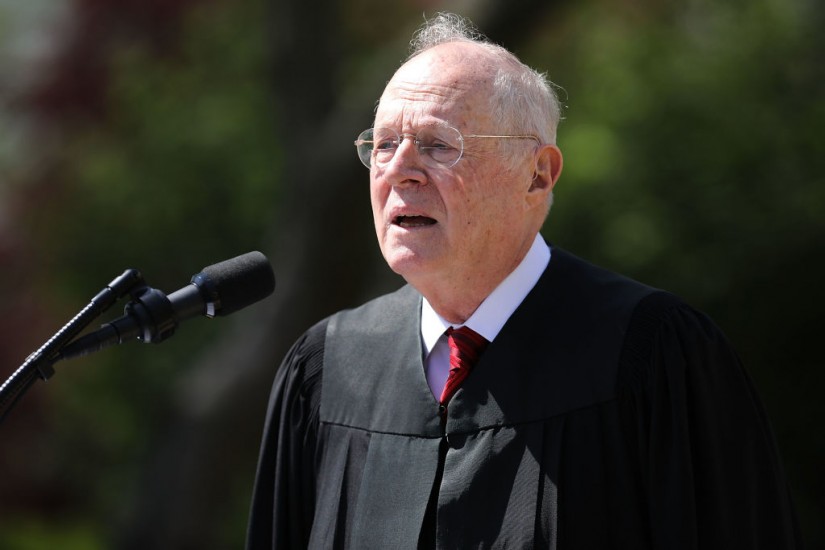Kennedy’s votes over the years seemed inconsistent to many, but not to him. He seemed to operate on a plane at a slight angle to the ideological reality the rest of America lived in, and always seemed to believe that his work was in the interests of his vision of liberty and dignity. In the years since 2008, he seemed to feel that his beloved country had turned away from liberty and toward a nightmare of big government. During oral argument in one of the many challenges to the Affordable Care Act, he asked Solicitor General Donald Verrilli whether the Act’s “individual mandate” was not “changing the relation of the individual to the government in ... a unique way.” His invocations of collectivist dystopias seemed to take on an additional urgency in the years since then.
That stubborn thread of libertarianism runs through all his opinions—some heartening, some infuriating, some simply puzzling. It was matched by a thread of decency and an abiding faith in the importance of courts and adjudication to a healthy democracy. On the bench, he was direct and ingenuous, and almost always courteous even to advocates whose cases he disliked. Those who met him found him almost uniformly warm and unassuming, still the gentle small-town lawyer he once had been.
For the past term at least, he has seemed visibly weary on the bench, and his courtly composure with advocates has turned at least intermittently testy. He leaves at a melancholy juncture for the Court; the events of 2016 have changed the institution he loves and its role in the national life, probably forever. The unprecedented blockade of the nomination of Merrick Garland by Senate Republicans, and the substitution of a hard-right Republican, former Kennedy clerk Neil Gorsuch, have begun to change the Court in ways that will take years to reckon.
There is no doubt whatsoever that Kennedy will be replaced by a much more ideological justice, and that much of his legacy may therefore prove evanescent. The court’s progress on LGBT rights will almost certainly come to an end; its faint interest in protecting the political process from political gerrymandering will also disappear. The Casey precedent will fall, if not in the coming term, then the next, or the one after that. Overall, the court will almost certainly take its place among the snarling partisan institutions that joust for power amid the unruly landscape of a divided republic.
